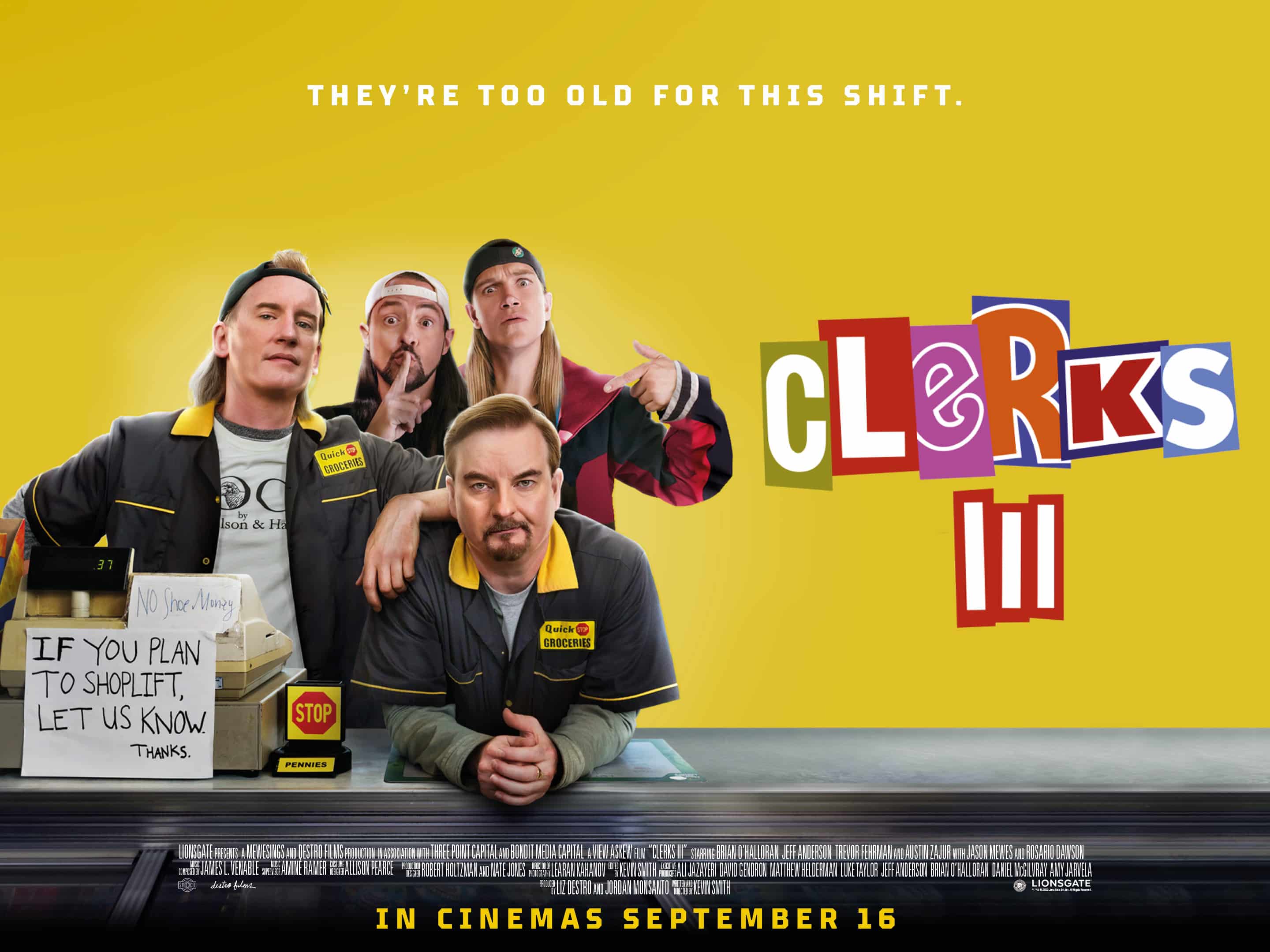
2001 saw the world introduced to Donnie Darko. The film, set in 1988, told the tale of a teenager weighed down by the knowledge that the world will end in twenty-eight days. The movie launched actor Jake Gyllenhaal as well as director Richard Kelly.
With Donnie Darko Kelly showcased a huge amount of talent, he wrote the film in addition to directing. Darko is a fantastic twisted tale of head scratching time-travel, filled with atmosphere, beautiful visuals and a killer British-heavy eighties soundtrack. It’s a movie that has stood the test of time and has recently been given a painstaking 4K restoration.
The restoration was a passion project for both Arrow Films and Richard Kelly, who curated the project. It really is a truly stunning release, spilling over with bonus content. To co-inside with the release we sat down with Kelly to delve into the history of the film, the oddities of time-travel and potential for a new Richard Kelly universe.

What do you think it is about Donnie Darko that has made it so long lasting?
Well I think its two things. Number one is the emotion, and number two is the complexity. I think people connect emotionally to Donnie and to the relationships that he has with the other characters. I think the actors do a great job of creating a sense of empathetic portrayals of these characters. So you care about them. I think it’s the emotional connection you have and the complexity of the narrative.
The way it’s constructed, it allows for people to revisit the film over and over and over again and see new things. No matter what part of your life that you’re in, whether you’re fifty, twenty-five, thirty-five or forty-five, you can always look back and go back down that emotional path. You can hopefully find something new or find that the movie makes you feel in a way that you weren’t expecting. I’m just really grateful that it continues to stand up. I’m always anxious that I’m gonna wake up one morning and the whole world is going to have changed their minds and decided that the movie doesn’t work (laughs)…. the movies finally hit the wall. Thankfully that day hasn’t arrived yet.

Donnie Darko is a rare example of a film that can be interpreted differently by different people. What’s the oddest interpretation that you’ve heard?
I’ve heard so many. There’s been so many theories thrown around that I don’t want to discount anyone’s theory because that’s part of the inclusive nature of this movie. The open-endedness of the narrative and I don’t want to discount anyone. I’m sure there’s some bizarre theories out there, but I don’t have one that pops into mind. It’s something that I feel like I don’t have a really great answer for one that rubs me the wrong way I guess.
The end’s ambiguity frustrated a few viewers, you know the ones that like the narrative tied up with a big bow and arrow pointing to a sign that screams it was this…
Well you could say, “okay this movie was about a dream”. You can say this movie is about an alternate dimension. This is a movie about a supernatural rift in space and time, or that this is a movie about a teenager’s dream and dreamworld. It’s a very huge idea. They can all be true, but you can also go down a lot of different theories.

How did the look / idea of Frank come together?
All the sketches in the movie that Donnie creates and you have hanging on the walls throughout the film, those are my sketches. I did all those drawings. I showed those to all my crew and art department and my production designer and costume designer. They all saw what the vision for the rabbit was. They took those sketches and worked with my costume designer April Ferry and they designed the rabbit very meticulously, with a very specific look. Then we brought him on set and James Duval wore the costume, and he came to life.
It was this very evocative image that we knew was going to strike a nerve with people. That’s what I wanted it to do. I wanted it to spark a nerve. I didn’t want people to look at the rabbit and feel nothing. I wanted them to feel disturbed by it, or put it a trance by it. Sometimes people would laugh when they see it or they would gasp or would remain transfixed. I knew it needed to be very, very evocative. It couldn’t just be a pedestrian image, it needed to really connect. It was all very much by design.
How did you come to be involved in the restoration and what was that like revisiting the film?
It was a wonderful phone call to get from Arrow. They’re a great company and they take great care of these restorations. I think it was an issue where, after fifteen years, the rights were being renegotiated and had changed hands and Arrow was very aggressive about wanting the film. They campaigned for the right to restore the film and this is something I had always wanted to do.
The movie was never transferred properly. It was a very poor transfer for many years. So I had a window where I could devote time to helping. Getting into the restoration in a very deep way. That was a great opportunity because it’s something that the film always needed and it was good that we were able to do it now. Otherwise it would have been having it done without my input. That would have been so stressful for me. I spent a lot of time obsessed with every shot of the movie, this is very much an approved restoration.
You’re dad had a very interesting job [he worked with NASA in the 70’s designing the camera that took the first images of Mars], did that help inspire you into film at all?
You mean my dad’s work at NASA?
Yeah…
Yeah, I think both of my parents helped pushed me into arts. My parents, my mum is a school teacher and my dad worked at NASA. They were both very supportive. They saw my drawings when I was like five years old and thought that I had talent. They immediately walked me next door to our neighbour who was an art teacher. They put me in front of an easel and gave me a piece of charcoal and I started sketching three dimensional shapes, learning how to light three dimensional shapes from a light source. That was were it all began. They put me in art class really young. They pushed me into the arts and gave me the confidence to push my way out to California and try and work in the greatest, most challenging, artistic medium that I think exists, and that’s film-making.

You’ve said before that getting actors who can act is really important, you lucked out with Donnie Darko as you get some great performances from your cast. Was it daunting directing the likes of Drew Barrymore and Patrick Swayze?
It was all very daunting. The whole thing. Again, working in movies is a huge undertaking. There’s a thousand decisions you have to make every minute. You’re juggling all of these things and you’re just trying to marriage it all. The actors are almost at the very top of the priority list. You have to manage the performances because if you don’t get the performances, it doesn’t matter if everything else is great. If the performances aren’t working, the movie doesn’t work. The actors are at the very top of the food chain. You start to make sure you’re giving them enough of what they need. That they know what they are doing, that they are in a comfortable space.
I was very fortunate to have a great cast. I had a great casting director who helped me find a lot of these people and helped negotiate introductions with a lot of these wonderful actors. Again, I’m just grateful that I was able to give them enough to work with. You gotta give them the credit for doing the heavy lifting really because they’re the ones saying the words.

Donnie Darko launched yourself and Jake [Gyllenhaal], have you kept up with his work? Do you think you might work together again?
I mean, I’m just constantly in awe of Jake and everything he’s accomplished. He has such an extraordinary body of work.If anything, I think we’re determined to work together again at some point, but I think we’re both very cautious about making sure it’s the right project. That its something that can stand-up next to Donnie Darko. We don’t want to do something and have it be compared as far inferior to what we’ve already done together. I think there’s a high standard that the film sets. One day we’ll find something, but it’ll have to be something special. We both know that we’ll find our way back together eventually. He’s done some very extraordinary work and it makes me very proud.

Donnie Darko is one of the best time-travel films, but what are your favourite time-travel movies?
You can go back to something like The Terminator, Terminator 2, Twelve Monkeys is a huge movie for me. Back to the Future obviously. Going back to something like La Jette which obviously was the inspiration origin for Twelve Monkeys. There’s also some of my contemporaries work that I love, Rian Johnson’s Looper – I though that was incredibly imaginative. These time travel movies, they’re not easy to pull off. They’re really, really tough. But when they’re done right they’re pretty extraordinary. It’s a genre that really lends itself to wish fulfilment. You can get a lot of character mileage out of the content.
How much research did you have to do in time-travel – the film bands around a lot of theories and concepts…
Well there was definitely Stephen Hawking, and his book is mentioned and seen in a scene with Noah Wyle and Jake Gyllenhaal in the film. You can obviously ignore science or can you embrace it. I tried to embrace it as much as possible, but at the same time you’re dealing with the idea of another dimension and you can create a lot of your own rules on top of stuff. An amendment to the science. That’s kind of what I tried to do.

Donnie Darko sounds like a superhero… do you have any desires to climb aboard the Marvel / DC wagon?
I try to stay as open-minded in doing anything, but I think in all this time in the past few years that I’ve been writing, I’ve been writing a lot of my own projects and trying to kind of create a workflow where moving forwards I’ll hopefully be directing a lot of movies back-to-back.
I’m trying to operate in my own sort of universe here. Tell stories in my own universe because I’m just continually inspired by the way people continue to revisit Donnie Darko and have my second and third film and see how they’re all connected. I’m just trying to stay faithful to the universe that I’ve been building. I’ll never say never to anything, but I think for the loyalty of the fans and people who continue to appreciate my work I want to live up to their expectations. I want it to tell original stories for them more then anything. That’s what I’m committed to for as long as I can. As long as I can survive.
So rather than join the DC or Marvel universe you’re working on starting your own Richard Kelly universe?
I’m trying my hardest, I’m trying (laughs). Who knows if I’ll succeed, but I promise you I’m trying!

The Donnie Darko restoration is available to own now on Blu-Ray and DVD.
Kat Hughes is a UK born film critic and interviewer who has a passion for horror films. An editor for THN, Kat is also a Rotten Tomatoes Approved Critic. She has bylines with Dread Central, Arrow Video, Film Stories, and Certified Forgotten and has had essays published in home entertainment releases by Vinegar Syndrome, Arrow and Second Sight. When not writing about horror, Kat hosts micro podcast Movies with Mummy along with her six-year-old daughter.

Latest Posts
-
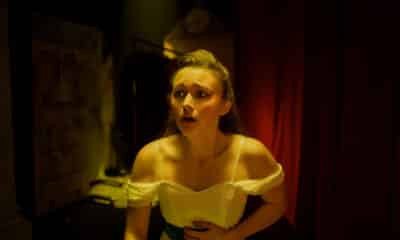

Film Reviews
/ 2 days ago‘Fear Street: Prom Queen’ review: Dir. Matt Palmer (2025)
It has been four years since Leigh Janiak’s Fear Street trilogy took horror fans...
By Kat Hughes -
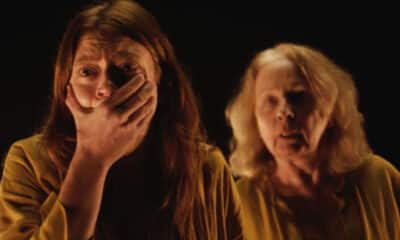

Film Reviews
/ 2 days ago‘The Surrender’ review: Dir. Julia Max (2025)
As Julia Max’s debut feature, The Surrender, unfolds, the inspirations for the film become...
By Kat Hughes -
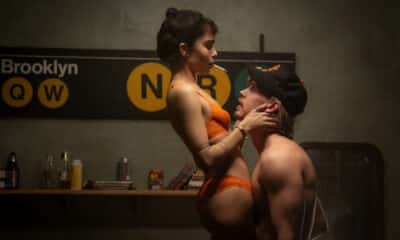

Film Trailers
/ 3 days agoFirst trailer for Darren Aronofsky’s ‘Caught Stealing’
Sony Pictures has released the debut trailer for Darren Aronofsky’s new film Caught Stealing,...
By Paul Heath -
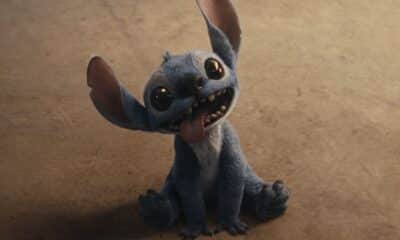

Film Reviews
/ 4 days ago‘Lilo and Stitch’ review: Dir. Dean Fleischer Camp (2025)
Director Dean Fleischer Camp won audiences over with the fantastic Marcel the Shell with...
By Kat Hughes


